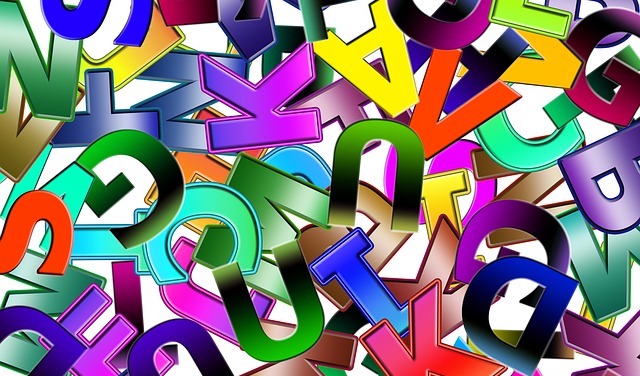What is Libel?
A non-lawyer's explanation of an issue too few first-time non-fiction publishers think about.

Definitions
Libel is the publication of a false statement which injures a person's business or personal reputation.
In order to be libelous, a statement must meet these conditions:
- There must be some negligence on the part of the writer
- It must be defamatory (false and injurious to the plaintiff's reputation)
- It must be published (distributed to someone other than the plaintiff and defendant)
- It is not privileged communication*
- The plaintiff must be identifiable to the reader
*Privileged communication includes statements made in judicial proceedings, legislative proceedings, and private communications between you and your spouse.
More Info:
- The Difference Between Libel and Slander
- Defamation Information
- Defamation Law and Free Speech
- Dealing With & Preventing Libel
- Libel Law in the United States
- Libel: Punishing the Media
Limitations and Defense
Truth: This is a rather obvious one. If you have evidence supporting the truth of the statement you made, the plaintiff can't prove it is false.
Opinion: Another obvious one. An opinion is an opinion and can't be proven false. On the other hand, if your statement includes a defamatory fact, or implies a defamatory fact along with your opinion, you might find yourself a defendant in a libel suit. Only pure opinion is a defense against libel.
Public Persons: In NY Times v. Sullivan, the U.S. Supreme Court decided that the media could freely report on the affairs of "public" people (like politicians and movie starts) unless statements are made with malice.
Statute of Limitations: One year after making a libelous statement, you can breathe easy in most states. In others, you may have to worry for two years.
The Punishment
First, the bad news: if you're the defendant in a libel suit, you must pay all your own legal fees, no matter whether you win or lose.
Secondly, in many states there are both civil and criminal penalties for libel, so along with monetary penalties imposed in a civil case, a defendant found guilty of libel may also face a jail term in some states.
Legal fees notwithstanding, libel is not cheap. Most of the damages awarded in libel cases are general or compensatory (compensation for humiliation, grief, etc.). Since there are no limits or standards to these sorts of damages, they often surpass the $1 million mark.
The good news? Libel defendants win more often than they lose.
Cases on the Web
Haynes V. Knopf - The Promised Land: The Great Black Migration and How It Changed America
"Luther Haynes and his wife, Dorothy Haynes nee Johnson, appeal from the dismissal on the defendants' motion for summary judgment of their suit against Nicholas Lemann, the author of a highly praised, best-selling book of social and political history called The Promised Land: The Great Black Migration and How It Changed America (1991), and Alfred A. Knopf, Inc., the book's publisher. The plaintiffs claim that the book libels Luther Haynes and invades both plaintiffs' right of privacy."
Prentice v. Roberts Rinehart Publishers - The Committee: Political Assassination in Northern Ireland
"The suit is brought by David and Albert Prentice (the "Plaintiffs"), prominent Protestant businessmen from Northern Ireland who claim that they have been falsely accused of conspiracy to commit murder, in a book written by defendant McPhilemy and published by defendant RR, namely, The Committee: Political Assassination in Northern Ireland."
Springer v. Viking Press - State of Grace
"This appeal presents us with the issue of whether a fictional depiction of a person contained in a single chapter of a novel is so closely related to plaintiff in the minds of people to whom she is known as to give rise to a cause of action in defamation. "
Armstrong v. Simon & Schuster - Den of Thieves
"This libel action arises out of the past decade of insider trading scandals and Wall Street intrigue, when the media was filled with reports of arbitrageur Ivan Boesky's stock schemes, investment banker Michael Milken's deployment of junk bonds in deals for Drexel Burnham Lambert.... By this action, plaintiff Michael F. Armstrong, a criminal defense attorney who represented individuals involved in these events, now seeks damages for an allegedly defamatory paragraph about him."
Sources
Read These Next
Five Habits of Successful Authors
While every writer has a different way of approaching their craft, there are some habits that many, if not most, successful authors engage in that contribute to their success. By incorporating these habits into your daily practices, you can increase your chance of success and personal growth in the writing industry.
The A to Z of Self-Publishing
This excerpt from "The Economical Guide to Self-Publishing: How to Produce and Market Your Book on a Budget" takes you through self-publishing from A to Z
Getting Started as a Children's Book Illustrator
Becoming a children's book illustrator is no easy task. No matter how talented you are, there are literally thousands of other talented illustrators out there looking for the same break you are. So how do you stand out from the crowd and be noticed?







 Publishing Law
Publishing Law Every Writer's Guide to Copyright and Publishing Law: Third Edition
Every Writer's Guide to Copyright and Publishing Law: Third Edition Kirsch's Handbook of Publishing Law: For Authors, Publishers, Editors and Agents
Kirsch's Handbook of Publishing Law: For Authors, Publishers, Editors and Agents Law and Authors: A Legal Handbook for Writers
Law and Authors: A Legal Handbook for Writers The Law (in Plain English) for Publishers
The Law (in Plain English) for Publishers Self-Publisher's Legal Handbook: Updated Guide to Protecting Your Rights and Wallet
Self-Publisher's Legal Handbook: Updated Guide to Protecting Your Rights and Wallet Publishing and the Law: Current Legal Issues
Publishing and the Law: Current Legal Issues Tort Law: Principles in Practice: Principles in Practice [Connected eBook with Study Center] (Aspen Casebook Series)
Tort Law: Principles in Practice: Principles in Practice [Connected eBook with Study Center] (Aspen Casebook Series) The Aspen Publishing Bouvier Law Dictionary: Desk Edition
The Aspen Publishing Bouvier Law Dictionary: Desk Edition Education and the Law (American Casebook Series)
Education and the Law (American Casebook Series)